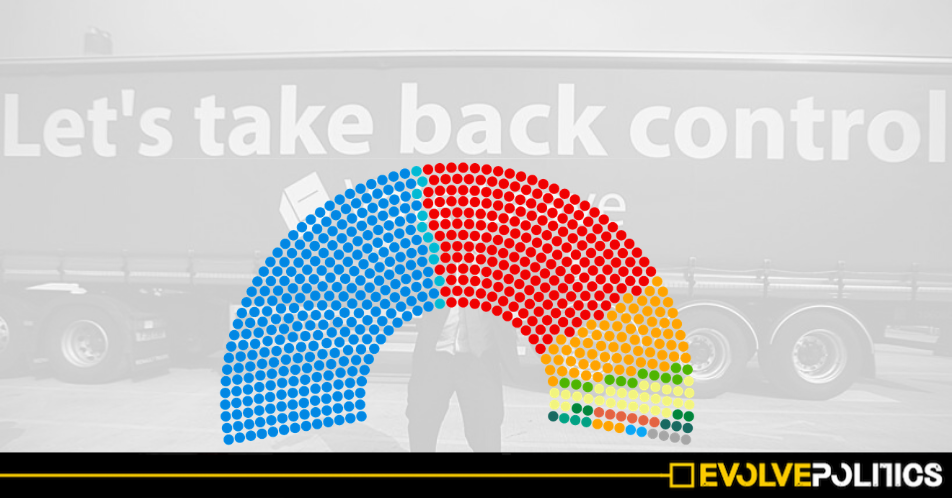Our electoral system is seriously flawed. Millions of Brits live in constituencies that have almost no chance of changing hands; many groups are simply ignored by politicians; and recent Electoral Reform Society polling showed that just two percent of the British public feel they have a ‘significant influence‘ over Parliament’s decision making. And then, if things weren’t already bad enough, the Government put the icing on the cake last month after passing the widely-criticised Parliamentary Constituencies Act – a piece of legislation which will see boundary changes to all 650 constituencies, supposedly in order to reflect changes in the UK population, but which is, surprise surprise, predicted to see the governing Tories gain up to 10 seats whilst the official Labour Party opposition lose out majorly.
Given the obvious signs of gerrymandering, added to the continued decline in democratic satisfaction across the country, it’s becoming increasing clear that a system which allows governing parties to benefit simply from the size and construct of constituencies, rather than by how many people actually vote for them, is extremely hard to justify as a fair and representative democratic system.
Another critical area of British democracy that is often overlooked is just how detrimental the First Past the Post (FPTP) electoral system is to society as a whole. FPTP hasn’t just failed to represent the electorate effectively, it has led to policies which don’t have anywhere near a majority of public support to be implemented, and resulted in millions of people genuinely believing that voting had become pointless – as revealed by the trend over the last few decades showing a declining turnout for General Elections.
And, this sentiment is not just a feeling, either – there are cold, hard facts which justify the increasingly negative public attitude felt by the public towards British democracy.
At almost every election, the peculiarities of the UK voting system lead to a huge proportion of people casting what known as ‘wasted votes’. For example, in the 2019 General Election, it was revealed that over 17 million votes had absolutely no influence on the number of seats that the party each person voted for actually received.
And, at almost every General Election, the Westminster voting system results in a government lacking a true majority of popular support – and in the past it has even allowed the party who actually came second in the popular vote to form a government, such as in 1951 and 1974.
And the problems don’t just appear on a national scale, either – they can be felt extremely close to home for millions of Brits.
Indeed, in order to become a member of parliament, a candidate doesn’t even need to win the majority of votes in their local constituency – they only need the highest number of votes. This means that, like the vast proportion of ruling governments, many MPs don’t hold a popular mandate in their local areas either. In fact, there are actually sitting MPs who actually hold less than a quarter of the constituency vote. This system leads to a phenomenon where MPs are literally ‘unrepresentative Representatives’, where a vast majority of their local constituents oppose their decisions, and where an MP simply puts the interests of the small minority who vote for them above the majority.
Given the mountains upon mountains of evidence showing the inherent unfairness and negative consequences of our First Past the Post system, it really is little wonder that so many Brits feel almost entirely disenfranchised.
Proportional Representation
Had the 2017 General Election been conducted under a truly representative voting system, the results would have looked dramatically different.
Under Proportional Representation, the Conservatives – who invariably benefit from the current FPTP system because their voter base is typically more evenly spread across the country compared to Labour’s – would have won just 276 seats instead of 317; Labour would have got 261, down just one from 262 under FPTP; the Lib Dems would be on 48 seats rather than 12, and the Greens would have garnered 11 seats instead of the single seat won by Caroline Lucas in Brighton Pavillion.
If the seats in Parliament genuinely represented the way the country actually voted in 2017, it’s likely that the result would have been a progressive coalition government with Jeremy Corbyn as Prime Minister.
In reality, however, the First Past the Post system translated the Tories’ 42.5% of the national vote into 49% of seats – allowing Theresa May to just about cling on to power with the help of the DUP, and resulting in an almost totally deadlocked Parliament for months on end.
Furthermore, it is no coincidence that countries whose electoral systems are based upon some form of Proportional Representation have significantly higher election turnouts than those which don’t. Indeed, one study into the subject shows that that the average national election turnout of a country that uses PR is 70.8% – higher than any UK General Election in over two decades.
At a time when faith in democracy is crumbling throughout the country; when the problems faced by ordinary people only ever seem to be getting worse; and when the very fate of the Union hangs in the balance, it is of paramount importance that our elected politicians are properly held to account for their actions, and that each and every voter across these four nations feels that their voice will be properly taken into account.
Scrapping our ridiculously outdated and entirely unrepresentative First Past the Post electoral system in favour of Proportional Representation would do what the United Kingdom has been desperately crying out for for years: put genuine power back into the hands of ordinary people and allow them to truly “Take Back Control”.

